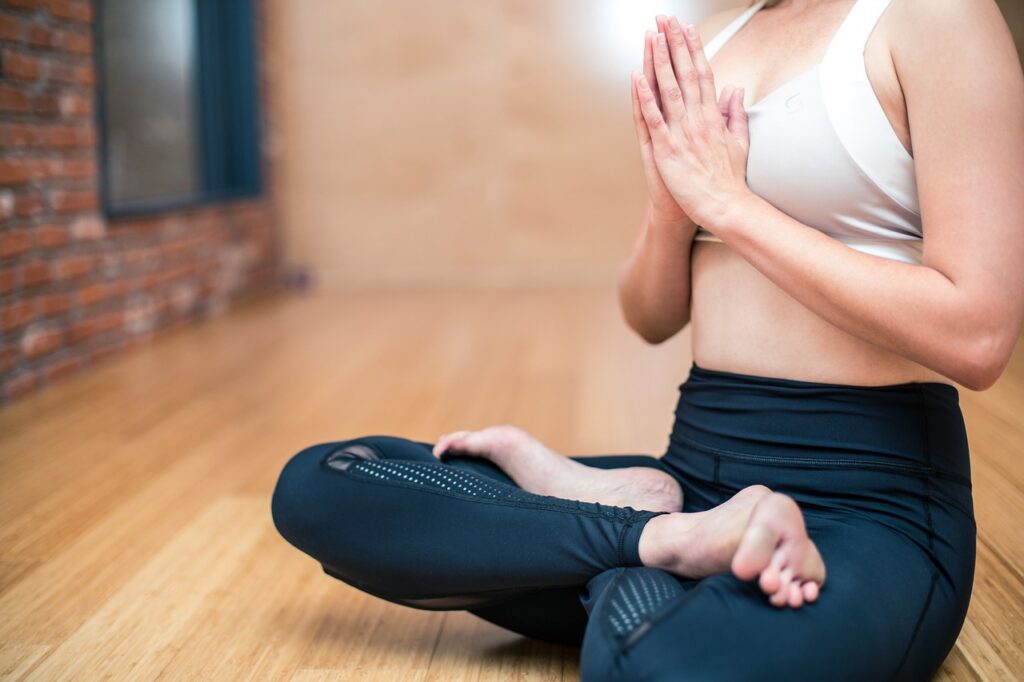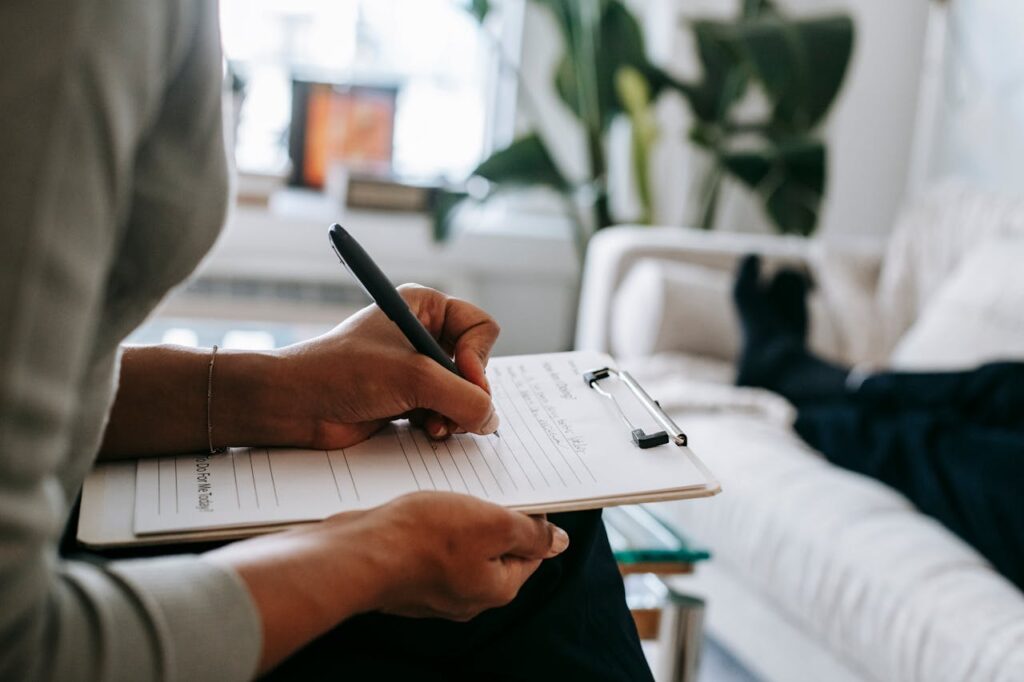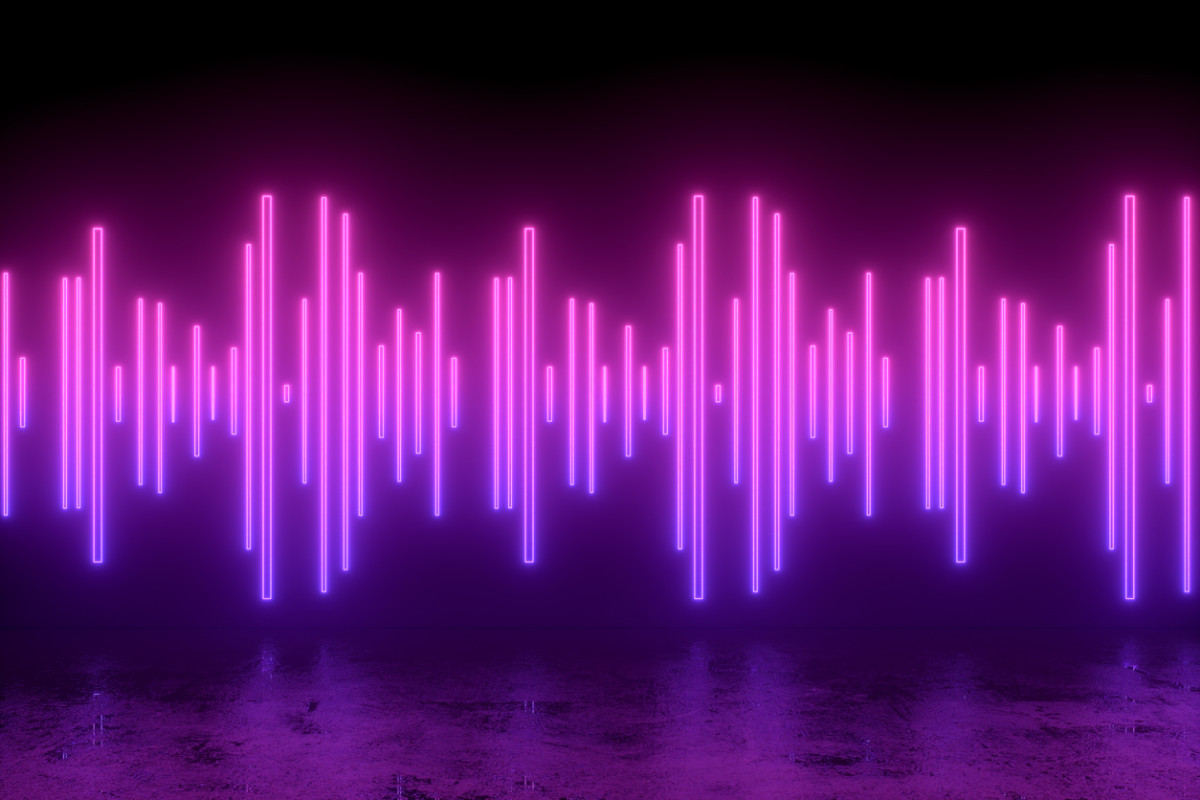Get ready to explore the realm of sleep aids that can help you drift off peacefully without the need for prescription drugs. From calming herbal remedies to relaxing bedtime routines, we have everything you need. So, snuggle up with your favourite cosy blanket, and let’s uncover the best natural sleep aids that will have you sleeping soundly in no time!
- Understanding Sleep and Its Importance
- 1. Herbal Remedies for Better Sleep
- 2. Nutritional Supplements as Sleep Aids
- 3. Lifestyle Changes for Improved Sleep
- 4. Relaxation Techniques to Promote Sleep
- 5. The Role of Diet in Sleep Quality
- 6. Alternative Therapies for Sleep Issues
- 7. Technology and Sleep Aids
- Conclusion
Understanding Sleep and Its Importance
Sleep is a fundamental biological process that’s essential for our physical and mental well-being. It’s not just about closing your eyes and drifting off; sleep is a complex series of stages that our bodies go through each night.
The Stages of Sleep
Sleep is divided into two main types: Rapid Eye Movement (REM) sleep and Non-REM sleep. Non-REM sleep is further divided into three stages:
- Stage 1: This is the lightest stage of sleep, where you’re easily awakened.
- Stage 2: Your heart rate slows and body temperature drops as you enter a deeper sleep.
- Stage 3: This is the deepest and most restorative stage of sleep.
REM sleep is when most dreaming occurs. Your brain becomes more active, and your body experiences temporary paralysis to prevent you from acting out your dreams.
A typical night’s sleep involves cycling through these stages multiple times, with each cycle lasting about 90-120 minutes.
Health Benefits of Quality Sleep
Getting enough quality sleep is crucial for numerous aspects of our health:
- Cognitive Function: Sleep helps consolidate memories and enhances learning. During sleep, our brains process and store information from the day.
- Emotional Regulation: A good night’s sleep can help stabilize our mood and reduce the risk of anxiety and depression.
- Physical Recovery: During sleep, our bodies repair tissues, synthesize proteins, and release growth hormones.
- Immune Function: Sleep strengthens our immune system, helping us fight off infections and diseases.
- Metabolic Health: Adequate sleep is linked to better weight management and reduced risk of type 2 diabetes.
Consequences of Sleep Deprivation
On the flip side, not getting enough sleep can have serious consequences:
- Cognitive Impairment: Lack of sleep can lead to difficulty concentrating, reduced alertness, and impaired decision-making.
- Mood Disorders: Chronic sleep deprivation is associated with an increased risk of depression and anxiety.
- Weakened Immune System: Poor sleep can make you more susceptible to infections and illnesses.
- Cardiovascular Issues: Long-term sleep deprivation is linked to an increased risk of heart disease and high blood pressure.
- Weight Gain: Sleep-deprived individuals often experience increased hunger and cravings, leading to weight gain.
Understanding the importance of sleep is the first step in prioritizing it in our lives. Now, let’s explore various natural ways to improve our sleep quality.
1. Herbal Remedies for Better Sleep

When it comes to improving sleep naturally, herbal remedies have been used for centuries. These plant-based solutions can be effective alternatives to prescription sleep aids, often with fewer side effects. Let’s explore some of the most popular and scientifically-backed herbal sleep aids.
Valerian Root: Nature’s Sedative
Valerian root has been used as a sleep aid for over 2,000 years. This herb is believed to increase the levels of gamma-aminobutyric acid (GABA) in the brain, a neurotransmitter that promotes relaxation and sleep.
How to use: Valerian root is typically taken as a supplement in capsule form or as a tea. The recommended dosage is usually 300-600 mg, taken 30 minutes to two hours before bedtime.
Effectiveness: Studies have shown mixed results, but many people report improved sleep quality and reduced time to fall asleep when using valerian root.
Precautions: While generally safe, valerian can interact with certain medications and may cause mild side effects like headaches or dizziness in some people.
Chamomile Tea: A Classic Bedtime Soother
Chamomile tea is perhaps the most well-known herbal sleep aid. Its calming effects are attributed to an antioxidant called apigenin, which binds to specific receptors in your brain that may promote sleepiness.
How to use: Steep a chamomile tea bag in hot water for 5-10 minutes before bedtime. For a stronger effect, you can use two tea bags.
Effectiveness: While more research is needed, many people find chamomile tea helps them relax and fall asleep more easily.
Precautions: Chamomile is generally safe, but people with ragweed allergies should be cautious as they may also be allergic to chamomile.
Lavender: Aromatherapy for Relaxation
Lavender is known for its soothing scent and is often used in aromatherapy to promote relaxation and improve sleep quality.
How to use: You can use lavender essential oil in a diffuser, sprinkle a few drops on your pillow, or take a warm bath with lavender oil before bed.
Effectiveness: Studies have shown that lavender can improve sleep quality and increase the amount of time spent in deep, slow-wave sleep.
Precautions: While lavender is safe for most people when used aromatically, it’s important to dilute essential oils properly if applied to the skin.
Passionflower: Calming the Mind for Sleep
Passionflower is another herb that’s been traditionally used to improve sleep quality. It’s thought to work by increasing GABA levels in the brain, similar to valerian root.
How to use: Passionflower can be taken as a tea, tincture, or in capsule form. A typical dose is 500 mg before bedtime.
Effectiveness: Some studies suggest that passionflower can help improve sleep quality and reduce the time it takes to fall asleep.
Precautions: Passionflower is generally safe but may interact with certain medications, including blood thinners and sedatives.
While these herbal remedies can be effective for many people, it’s important to remember that individual responses can vary. If you’re considering using herbal sleep aids, especially if you’re taking other medications, it’s always best to consult with a healthcare provider first.
2. Nutritional Supplements as Sleep Aids

In addition to herbal remedies, certain nutritional supplements can help improve sleep quality. These supplements often work by supporting the body’s natural sleep-wake cycle or by promoting relaxation. Let’s explore some of the most popular and scientifically-backed nutritional supplements for sleep.
Melatonin: The Sleep Hormone Supplement
Melatonin is a hormone naturally produced by our bodies that helps regulate our sleep-wake cycle or circadian rhythm. It’s often called the “sleep hormone” because its levels rise in the evening, signalling to our bodies that it’s time to sleep.
How it works: Melatonin supplements can be particularly helpful for people with disrupted circadian rhythms, such as those experiencing jet lag or working night shifts.
Dosage: Typical doses range from 0.5 to 5 mg, taken 30 minutes to an hour before bedtime. It’s generally recommended to start with a lower dose and increase if needed.
Effectiveness: Numerous studies have shown that melatonin can help people fall asleep faster and improve overall sleep quality.
Precautions: While melatonin is generally considered safe for short-term use, it can cause side effects like headaches, dizziness, or nausea in some people. Long-term effects are not well-studied.
Magnesium: Relaxing Muscles and Nerves
Magnesium is a mineral that plays a crucial role in nearly every aspect of health, including sleep. It helps activate the parasympathetic nervous system, which is responsible for relaxation.
How it works: Magnesium can help relax muscles and nerves, making it easier to fall asleep. It also regulates melatonin production.
Dosage: The recommended dietary allowance (RDA) for magnesium is 310-420 mg for adults, depending on age and gender.
Effectiveness: Studies have shown that magnesium supplementation can improve sleep quality, especially in people with low magnesium levels.
Precautions: High doses of magnesium can cause digestive issues. People with kidney problems should consult a doctor before taking magnesium supplements.
L-theanine: Promoting Relaxation Without Drowsiness
L-theanine is an amino acid found primarily in tea leaves. It’s known for its ability to promote relaxation without causing drowsiness.
How it works: L-theanine increases the production of GABA and other calming brain chemicals, which can help reduce anxiety and improve sleep quality.
Dosage: A typical dose ranges from 200-400 mg, taken 30-60 minutes before bedtime.
Effectiveness: Research suggests that L-theanine can help people fall asleep more quickly and easily, and improve sleep quality.
Precautions: L-theanine is generally considered safe, but may interact with certain medications. As always, consult with a healthcare provider before starting any new supplement.
GABA: Supporting Neurotransmitter Balance
Gamma-aminobutyric acid (GABA) is the main inhibitory neurotransmitter in the brain, meaning it helps calm brain activity.
How it works: GABA supplements are thought to help promote relaxation and sleep by mimicking the effects of natural GABA in the brain.
Dosage: Typical doses range from 100-200 mg, taken 30-60 minutes before bedtime.
Effectiveness: While more research is needed, some studies suggest that GABA supplements may help reduce stress and improve sleep quality.
Precautions: GABA supplements are generally considered safe, but can cause side effects like headaches or stomach upset in some people.
It’s important to note that while these supplements can be helpful for many people, they’re not a magic solution for sleep problems. They work best when combined with good sleep hygiene practices and a healthy lifestyle. As always, it’s recommended to consult with a healthcare provider before starting any new supplement regimen, especially if you have existing health conditions or are taking medications.
3. Lifestyle Changes for Improved Sleep

While supplements and herbal remedies can be helpful, making certain lifestyle changes is often the most effective way to improve sleep quality in the long term. These changes can help regulate your body’s natural sleep-wake cycle and create an environment conducive to restful sleep.
Establishing a Consistent Sleep Schedule
One of the most important steps in improving sleep is to establish a consistent sleep schedule. This means going to bed and waking up at the same time every day, even on weekends.
Why it works: A consistent sleep schedule helps regulate your body’s internal clock or circadian rhythm. This makes it easier to fall asleep and wake up naturally.
How to implement:
- Choose a bedtime that allows for 7-9 hours of sleep.
- Stick to this schedule even on weekends or days off.
- If you need to adjust your schedule, do so gradually (15 minutes earlier or later each day).
Tips: If you can’t fall asleep within about 20 minutes, leave your bedroom and do a relaxing activity until you feel sleepy.
Creating a Sleep-Friendly Environment
Your sleep environment can significantly impact your sleep quality. A comfortable, quiet, and dark room can help promote better sleep.
Key elements of a sleep-friendly environment:
- Temperature: Keep your bedroom cool, ideally between 60-67°F (15-19°C).
- Darkness: Use blackout curtains or an eye mask to block out light.
- Noise control: Use earplugs or a white noise machine if needed.
- Comfortable bedding: Invest in a supportive mattress and comfortable pillows.
Tips: Remove electronic devices from your bedroom, or at least turn them off an hour before bedtime. The blue light emitted by these devices can interfere with your sleep.
Limiting Screen Time Before Bed
The blue light emitted by phones, tablets, computers, and TVs can interfere with your body’s production of melatonin, making it harder to fall asleep.
How to reduce screen time:
- Establish a “digital curfew” 1-2 hours before bedtime.
- If you must use devices, use blue light filtering apps or glasses.
- Replace screen time with relaxing activities like reading, gentle stretching, or meditation.
Tips: If you use your phone as an alarm, put it on “Do Not Disturb” mode and place it face down or across the room to avoid the temptation to check it.
Regular Exercise and Its Impact on Sleep
Regular physical activity can significantly improve sleep quality. However, the timing of exercise is important.
Benefits of exercise for sleep:
- Reduces the time it takes to fall asleep
- Increases sleep duration
- Improves sleep quality
How to implement:
- Aim for at least 30 minutes of moderate aerobic exercise most days of the week.
- Try to finish vigorous exercise at least 3 hours before bedtime.
- Light stretching or yoga can be beneficial closer to bedtime.
Tips: If you’re not currently active, start slowly and gradually increase your activity level. Even a 10-minute walk can make a difference.
Managing Stress and Anxiety
Stress and anxiety are common culprits behind sleep problems. Learning to manage these feelings can significantly improve sleep quality.
Stress-reduction techniques:
- Mindfulness meditation: Practice focusing on the present moment without judgment.
- Deep breathing exercises: Try the 4-7-8 technique (inhale for 4 counts, hold for 7, exhale for 8).
- Progressive muscle relaxation: Systematically tense and relax different muscle groups.
- Journaling: Write down your thoughts and worries before bed to “clear” your mind.
Tips: If stress and anxiety persistently interfere with your sleep, consider seeking help from a mental health professional.
Improving sleep often requires a multifaceted approach. It may take some time and experimentation to find the combination of strategies that works best for you. Be patient with yourself and consistent in your efforts. Over time, these lifestyle changes can lead to significant improvements in your sleep quality and overall health.
4. Relaxation Techniques to Promote Sleep

Relaxation techniques can be powerful tools in promoting better sleep. These methods help calm the mind and body, making it easier to transition into sleep. Let’s explore some effective relaxation techniques that you can incorporate into your bedtime routine.
Progressive Muscle Relaxation
Progressive Muscle Relaxation (PMR) is a technique that involves tensing and then relaxing different muscle groups in the body. This practice can help reduce physical tension and mental stress.
How to practice PMR:
- Start by tensing the muscles in your toes for 5 seconds, then relax for 30 seconds.
- Move up to your calves, thighs, buttocks, abdomen, chest, arms, and finally your face.
- Focus on the sensation of relaxation as you release each muscle group.
Benefits: PMR can help reduce anxiety, lower blood pressure, and prepare your body for sleep.
Tips: You can find guided PMR exercises online or through meditation apps if you prefer to follow along with instructions.
Deep Breathing Exercises
Deep breathing exercises can activate the body’s relaxation response, helping to slow heart rate and lower blood pressure.
4-7-8 Breathing Technique:
- Inhale quietly through your nose for 4 seconds.
- Hold your breath for 7 seconds.
- Exhale completely through your mouth, making a whoosh sound, for 8 seconds.
- Repeat this cycle four times.
Benefits: This technique can help reduce anxiety, manage stress responses, and promote relaxation conducive to sleep.
Tips: Practice this technique daily, not just at bedtime, to maximize its effectiveness.
Guided Imagery and Visualization
Guided imagery involves using your imagination to create calming, peaceful images in your mind. This can help distract from anxious thoughts and promote relaxation.
How to practice:
- Find a comfortable position and close your eyes.
- Imagine a peaceful, calming scene in detail (e.g., a beach, forest, or mountain retreat).
- Engage all your senses in the visualization (what you see, hear, smell, feel, and taste).
- Spend 5-15 minutes immersed in this mental imagery.
Benefits: Guided imagery can reduce stress, anxiety, and pain, promoting a state of relaxation conducive to sleep.
Tips: You can find guided imagery scripts or recordings online if you prefer guided practice.
Mindfulness Meditation as Sleep Aids
Mindfulness meditation involves focusing your attention on the present moment, acknowledging and accepting your thoughts and feelings without judgment.
How to practice:
- Sit or lie in a comfortable position.
- Focus on your breath, noticing the sensation of each inhale and exhale.
- When your mind wanders (which is normal), gently bring your attention back to your breath.
- Start with 5 minutes and gradually increase the duration as you become more comfortable with the practice.
Benefits: Regular mindfulness practice can reduce insomnia, fatigue, and depression.
Tips: There are many apps and online resources available for guided mindfulness meditation if you’re new to the practice.
Yoga Nidra
Yoga Nidra, also known as “yogic sleep,” is a state of conscious deep sleep. It’s a powerful relaxation technique that can be practised before bed.
How to practice:
- Lie down in a comfortable position.
- Follow a guided Yoga Nidra practice (available through apps or online).
- The practice typically involves a body scan, breath awareness, and visualization.
Benefits: Yoga Nidra can help reduce stress, improve sleep quality, and even alleviate symptoms of anxiety and depression.
Tips: While Yoga Nidra is typically practised for 30-45 minutes, even a shorter practice can be beneficial for sleep.
Relaxation is a skill that improves with practice. Don’t get discouraged if you don’t feel an immediate effect. Regular practice of these techniques can lead to significant improvements in your ability to relax and, consequently, in your sleep quality. Experiment with different methods to find what works best for you, and consider incorporating one or more of these techniques into your nightly routine.
5. The Role of Diet in Sleep Quality

What you eat and drink can significantly impact your sleep quality. Certain foods and beverages can promote better sleep, while others can interfere with your ability to fall asleep or stay asleep throughout the night. Let’s explore how diet influences sleep and what dietary choices can help improve your sleep quality.
Foods That Promote Sleep
Several foods contain nutrients that can help promote better sleep:
Tryptophan-rich foods: Tryptophan is an amino acid that the body uses to produce serotonin and melatonin, both of which are important for sleep. Foods high in tryptophan include:
- Turkey
- Chicken
- Eggs
- Cheese
- Fish
- Nuts and seeds
- Soybeans
Complex carbohydrates: These can help increase the availability of tryptophan in the brain. Good choices include:
- Whole grain bread
- Oatmeal
- Sweet potatoes
- Quinoa
Magnesium-rich foods: Magnesium helps activate the parasympathetic nervous system responsible for relaxation. Foods high in magnesium include:
- Leafy green vegetables
- Nuts and seeds
- Whole grains
- Legumes
Foods containing melatonin: Some foods naturally contain melatonin, which can help regulate sleep-wake cycles:
- Tart cherries and cherry juice
- Nuts, especially pistachios and almonds
- Certain types of fish, like salmon
Tip: A light snack combining complex carbohydrates and protein about an hour before bed can help promote sleep. For example, whole grain crackers with cheese or a small bowl of oatmeal with nuts.
Beverages to Avoid Before Bedtime
While certain foods can promote sleep, some beverages can interfere with sleep quality:
- Caffeine: Avoid caffeinated beverages like coffee, tea, and energy drinks for at least 6 hours before bedtime. Caffeine can stay in your system for up to 8 hours.
- Alcohol: While alcohol might make you feel sleepy initially, it can disrupt your sleep cycle later in the night, leading to poor sleep quality.
- Sugary drinks: These can cause a spike in blood sugar, followed by a crash that might wake you up in the middle of the night.
- Large amounts of liquid: Drinking too much of any liquid close to bedtime can lead to nighttime trips to the bathroom, disrupting your sleep.
Tip: If you’re thirsty before bed, opt for a small glass of water or herbal tea like chamomile, which can have a calming effect.
Timing of Meals and Its Effect on Sleep
The timing of your meals can also impact your sleep quality:
- Avoid large meals close to bedtime: Eating a big meal right before bed can lead to discomfort and indigestion, making it harder to fall asleep. Try to eat your last large meal at least 2-3 hours before bedtime.
- Be cautious with spicy or acidic foods: These can cause heartburn or indigestion, especially when consumed close to bedtime.
- Consider your dinner time: Eating dinner too early might lead to hunger before bed while eating too late might interfere with sleep. Find a balance that works for your schedule and digestive system.
- Be mindful of snacking: If you need a snack before bed, choose something light and sleep-promoting, like a small serving of nuts or a piece of fruit.
Tip: Pay attention to how different foods and meal timings affect your sleep. Everyone’s body responds differently, so what works for one person might not work for another.
Hydration and Sleep
Proper hydration is important for good sleep, but the timing of fluid intake matters:
- Stay hydrated throughout the day: This can help prevent the need to drink large amounts of water close to bedtime.
- Limit fluids 1-2 hours before bed: This can help reduce nighttime trips to the bathroom.
- If you wake up thirsty: Keep a small glass of water by your bed, but try to drink only enough to quench your thirst.
Tip: If you frequently wake up thirsty, it might be a sign that you’re not getting enough hydration during the day.
While diet can play a significant role in sleep quality, it’s just one piece of the puzzle. Combining a sleep-friendly diet with good sleep hygiene practices, regular exercise, and stress management techniques can lead to the best results. As always, if you have persistent sleep issues, it’s important to consult with a healthcare provider, as they might be a sign of an underlying health condition.
6. Alternative Therapies for Sleep Issues

While lifestyle changes and dietary adjustments can significantly improve sleep for many people, some individuals may benefit from exploring alternative therapies. These approaches can complement traditional treatments and may provide relief for those struggling with persistent sleep issues. Let’s explore some popular alternative therapies for improving sleep quality.
Cognitive Behavioral Therapy for Insomnia (CBT-I)
CBT-I is a structured program that helps you identify and replace thoughts and behaviours that cause or worsen sleep problems with habits that promote sound sleep.
Components of CBT-I:
- Cognitive therapy: Changing negative thoughts about sleep.
- Stimulus control: Associating the bedroom with sleep.
- Sleep restriction: Limiting time in bed to increase sleep efficiency.
- Sleep hygiene education: Teaching about lifestyle habits that improve sleep.
- Relaxation training: Learning techniques to reduce tension and anxiety.
Effectiveness: CBT-I is considered the first-line treatment for chronic insomnia and is effective in numerous studies.
How to access: CBT-I can be delivered one-on-one with a therapist, in group settings, or through digital platforms and apps.
Light Therapy for Circadian Rhythm Adjustment
Light therapy involves exposure to specific wavelengths of light to help regulate the body’s internal clock.
How it works:
- Exposure to bright light in the morning can help reset your circadian rhythm.
- It may be particularly helpful for people with delayed sleep phase syndrome or seasonal affective disorder.
Using light therapy:
- Use a light therapy box that provides 10,000 lux of light.
- Sit about 16-24 inches from the light for 20-30 minutes, preferably in the morning.
- Keep your eyes open, but don’t look directly at the light.
Considerations: While generally safe, light therapy may not be suitable for everyone, particularly those with certain eye conditions or on photosensitizing medications.
Massage Therapy
Massage therapy can help promote relaxation, reduce stress, and alleviate muscle tension, all of which can contribute to better sleep.
Benefits to sleep:
- Increases serotonin production, which is important for sleep regulation.
- Reduces cortisol levels, helping to lower stress and promote relaxation.
- Can alleviate pain and tension that might interfere with sleep.
Types of massage: Swedish massage, deep tissue massage, and aromatherapy massage can all be beneficial for sleep.
Considerations: While generally safe, massage may not be suitable for everyone. Consult with a healthcare provider if you have any health concerns.
Hypnotherapy
Hypnotherapy involves inducing a state of focused attention and heightened suggestibility to promote positive changes.
How it may help sleep:
- Can help reduce anxiety and racing thoughts that interfere with sleep.
- May help reprogram negative sleep associations.
- Can teach relaxation techniques to use at bedtime.
What to expect: A hypnotherapist will guide you into a relaxed state and then offer suggestions to help improve your sleep patterns.
Considerations: Choose a certified hypnotherapist. While generally safe, hypnosis may not be suitable for people with certain mental health conditions.
Biofeedback
Biofeedback involves using electronic monitoring of bodily processes (like heart rate or muscle tension) to gain conscious control over these typically involuntary functions.
How it may help sleep:
- Teaches you to recognize and control physical signs of stress and tension.
- Can help lower heart rate and blood pressure, promoting relaxation.
- May be particularly helpful for people whose sleep issues are related to stress or anxiety.
Types of biofeedback: Electromyography (EMG), heart rate variability (HRV), and neurofeedback are common types used for sleep issues.
Considerations: Biofeedback typically requires multiple sessions and practice to be effective. It should be conducted under the guidance of a trained professional.
While these alternative therapies can be beneficial, they work best when combined with good sleep hygiene practices and a healthy lifestyle. It’s also important to note that what works for one person may not work for another. If you’re considering trying any of these therapies, especially if you have ongoing sleep issues or other health concerns, it’s always best to consult with a healthcare provider first. They can help you determine the most appropriate approach based on your individual needs and health status.
7. Technology and Sleep Aids

In our increasingly digital world, technology has found its way into almost every aspect of our lives, including our sleep habits. While excessive screen time can negatively impact sleep, certain technological innovations are designed to promote better sleep. Let’s explore how technology can be used as a sleep aid and the various devices and applications available to help improve sleep quality.
White Noise Machines and Sleep Apps
White noise and other soothing sounds can help mask disruptive noises and create a more conducive environment for sleep.
White Noise Machines:
- These devices produce a consistent sound that can help drown out background noises.
- Some machines offer a variety of sounds, including white noise, pink noise, nature sounds, and more.
- Many people find these sounds soothing and report falling asleep more easily with their use.
Sleep Apps:
- Numerous apps are available that provide a wide range of sleep-inducing sounds.
- Popular options include Calm, Headspace, and Sleep Cycle.
- These apps often offer additional features like guided meditations, sleep stories, and sleep tracking.
Considerations: While many people find these tools helpful, it’s important to find the right sound and volume level for you. Some people may find certain sounds more disruptive than helpful.
Smart Mattresses and Sleep Tracking Devices
Advances in sleep technology have led to the development of smart mattresses and wearable devices that can track various aspects of your sleep.
Smart Mattresses:
- These mattresses often come with built-in sensors that can track sleep duration, movements, and sometimes even heart rate and breathing patterns.
- Some models can adjust firmness or temperature based on your sleep patterns or preferences.
- Many smart mattresses integrate with smartphone apps to provide detailed sleep reports and personalized recommendations.
Wearable Sleep Trackers:
- Devices like Fitbit, Apple Watch, and Oura Ring can track sleep duration, stages, and quality.
- They often provide insights into your sleep patterns and suggestions for improvement.
- Some trackers also monitor factors like heart rate variability and body temperature, which can provide additional insights into your overall health and sleep quality.
Considerations: While these devices can provide interesting insights, it’s important not to become overly fixated on the data. If tracking your sleep causes more stress or anxiety, it may be counterproductive.
Read more: Sleep Tracking: How Technology Changes The Way We Recharge
Light-Filtering Glasses for Reducing Blue Light Exposure
Blue light, particularly from digital screens, can interfere with your body’s production of melatonin, the hormone that regulates sleep-wake cycles.
Blue Light Blocking Glasses:
- These glasses have special lenses that filter out blue light.
- Wearing them in the evening, especially when using digital devices, may help prevent disruption to your natural sleep-wake cycle.
- Some people report falling asleep more easily and experiencing better sleep quality when using these glasses.
Considerations: While blue light-blocking glasses can be helpful, it’s still best to limit screen time before bed. Many devices also have built-in blue light filters or “night mode” settings that can be activated in the evening.
Smart Lighting Systems
Smart lighting systems can help support your natural circadian rhythm by adjusting the colour and intensity of light throughout the day.
Features of Smart Lighting:
- Ability to program lights to gradually dim in the evening, mimicking natural sunset.
- Option to set warm, low lighting for nighttime activities.
- Programmable wake-up lights that gradually brighten in the morning, simulating sunrise.
Considerations: While smart lighting can be helpful, it’s important to maintain a consistent sleep schedule and limit exposure to bright lights in the evening, regardless of the source.
Temperature Regulation Devices
Body temperature plays a crucial role in regulating sleep, and some devices aim to optimize sleep environment temperature.
Cooling Mattress Pads:
- These devices can help regulate your bed temperature throughout the night.
- Some models allow you to set different temperatures for different times of the night.
Smart Thermostats:
- Can be programmed to adjust room temperature for optimal sleep conditions.
- Some models can learn your preferences over time and adjust automatically.
Considerations: The ideal sleep temperature can vary from person to person, so it may take some experimentation to find what works best for you.
Meditation and Relaxation Apps
Many apps offer guided meditations, breathing exercises, and relaxation techniques specifically designed to promote sleep.
Features of Sleep Meditation Apps:
- Guided meditations of various lengths.
- Breathing exercises to promote relaxation.
- Sleep stories or “bedtime tales” for adults.
- Calming music or nature sounds.
Popular Apps: Calm, Headspace, Insight Timer, and Breethe are some well-known options.
Considerations: While these apps can be helpful, it’s important to limit screen time before bed. Consider using audio-only features or listening through a speaker rather than holding your phone.
While technology can offer valuable tools for improving sleep, it’s important to remember that these aids should complement, not replace, good sleep hygiene practices. The most effective approach to improving sleep often involves a combination of healthy sleep habits, a conducive sleep environment, and appropriate use of sleep-promoting tools and technologies. As with any significant changes to your sleep routine, it’s always a good idea to consult with a healthcare provider, especially if you have persistent sleep issues.
Conclusion
We’ve journeyed through the land of natural sleep aids, and boy, there’s a lot to choose from! From calming chamomile tea to high-tech sleep trackers, the options for improving your sleep are endless. Remember, finding the right sleep aid might take some trial and error, but don’t lose hope! Your perfect sleep solution is out there. Why not start by trying one of these natural remedies tonight? Sweet dreams, and may the sleep fairies be ever in your favour!
But before you drift off, tell me: What’s your go-to method for getting a good night’s sleep? Share your tips and tricks in the comments below – let’s help each other catch those sleep!



